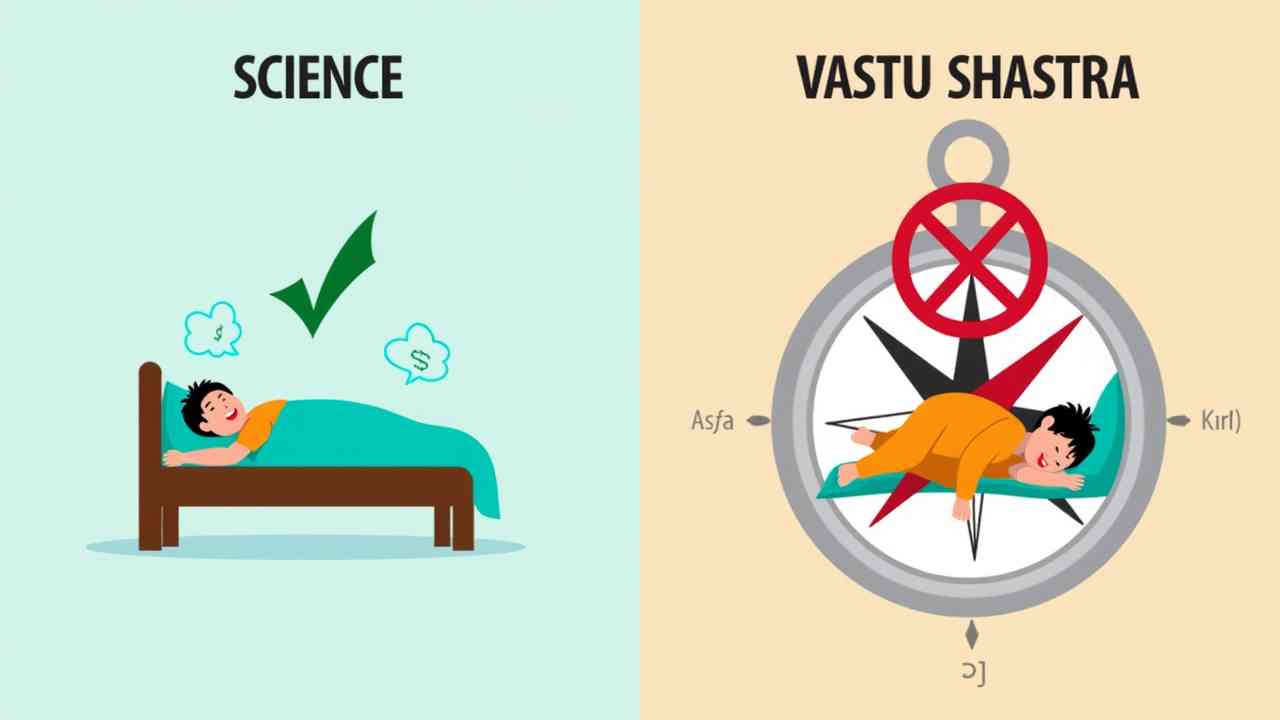
🧭 Which Direction Should You Sleep? Science vs. Vastu Shastra
🧭 Which Direction Should You Sleep? (A Guide to Science vs. Tradition) 🧭
It is a question that has been debated for centuries, blending ancient wisdom with modern science. In the quest for a perfect night's sleep, many people wonder if the physical direction their body is pointed in can make a difference. So, which direction should you sleep?
The answer depends entirely on who you ask. Modern medical science has a very different perspective than ancient traditions like Vastu Shastra or Feng Shui. Understanding both viewpoints can help you decide what is most important for your own rest.
This guide will explore both the scientific consensus and the traditional beliefs. Let's get our bearings on this fascinating topic. It is a perfect question to ponder as the cozy autumn nights here in Bursa set in. 🍂
🤔 What Does Modern Science Say?
From a purely scientific and medical standpoint, for the vast majority of healthy people, there is no credible evidence to suggest that sleeping in a particular direction has any significant impact on your sleep quality or overall health. The theories that do exist are very weak.
The main theory is related to the Earth's magnetic field. The idea is that since our bodies have their own subtle electromagnetic fields, the direction we sleep in relation to the Earth's poles could have an effect. However, the Earth's magnetic field is extremely weak, and studies have failed to show any consistent, meaningful health effects related to sleep direction.
Sleep scientists agree that other factors are vastly more important for a good night's rest.
- What Do Traditional Beliefs Say? (Vastu Shastra & Feng Shui)
In contrast to science, ancient Eastern philosophies have very strong and specific rules about sleep direction. These are central tenets of practices designed to harmonize the flow of energy in your home.
Why Does Vastu Shastra Warn Against Sleeping with Your Head to the North?
This is the most famous rule in Vastu Shastra, an ancient Hindu system of architecture. The theory is based on the relationship between the body's magnetic field and the Earth's. The human head is considered the North Pole of the body's magnetic field. Since the Earth's North Pole is also in the north, sleeping with your head in that direction causes the two "like" poles to repel each other.
This repulsion is believed to disrupt blood circulation, increase stress on the brain, and lead to disturbed, restless sleep. For this reason, Vastu considers sleeping with your head to the north to be the worst possible direction.
Which Direction is Considered the Best?
According to Vastu, sleeping with your head pointed to the South is the ideal direction. This allows your body's magnetic field to align harmoniously with the Earth's, promoting deep, restorative sleep and good health.
⭐ What is the Most Important Factor for Good Sleep?
While the traditional beliefs are fascinating, modern sleep science is clear. The most important factors for getting a good night's sleep have nothing to do with a compass. The proven keys to quality rest are:
- Your Sleep Environment: A room that is cool, dark, and quiet.
- Comfort: A supportive mattress and a comfortable pillow that properly aligns your spine.
- Consistency: A regular sleep schedule, even on weekends.
The final verdict? While you can certainly experiment with sleeping with your head to the south, it is far more important to focus on these proven sleep hygiene principles. The best direction to sleep is the one that feels most comfortable for you. 😴